City of Angels vs. Trump’s law and order The White House cracks down on anarchy
Donald Trump’s return to power in the United States took many political analysts by surprise. After his first victory, the country was engulfed by mass protests from feminist groups, LGBT activists, and other left-wing movements. This time, however, the opposition showed far less activity and appeared disorganised.
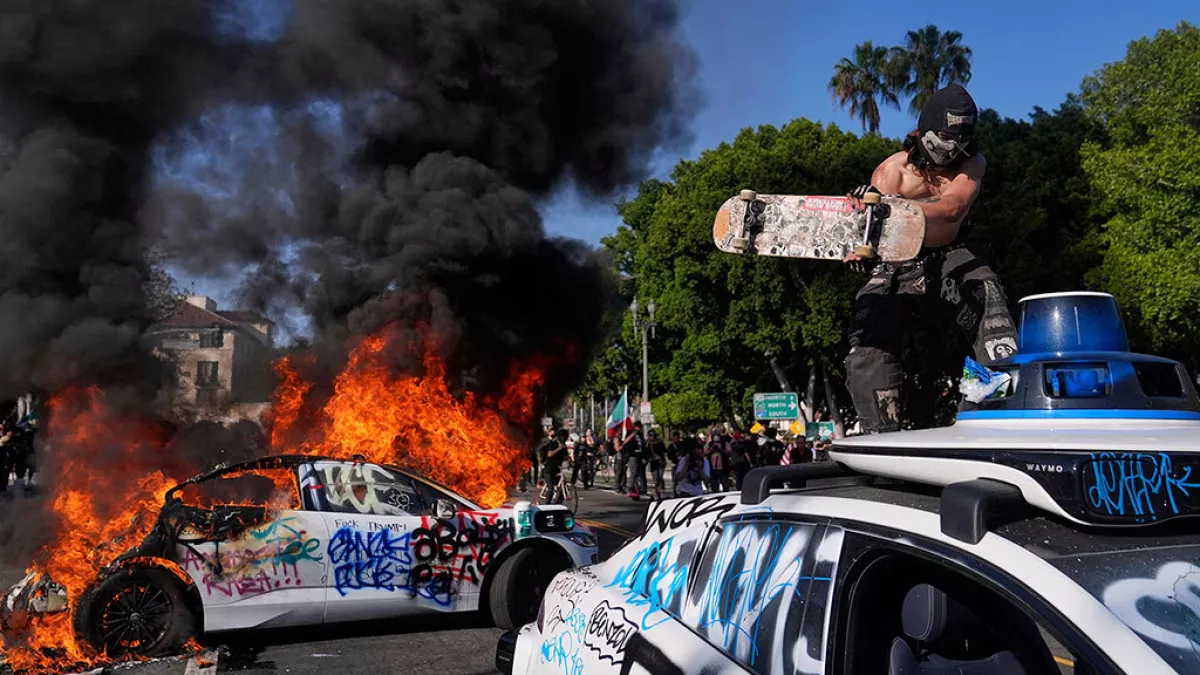
But the calm did not last long. On June 6, mass riots erupted in Los Angeles, which forces opposing Trump tried to use as a springboard for a political comeback. The cause was raids in the city’s industrial zone, where, according to federal authorities, hundreds of undocumented migrants were working. These actions were part of the Trump administration’s policy aimed at restoring order in the labour market and combating violations of immigration rules.
The reaction of some local residents was aggressive: protests involved egg-throwing, chanting slogans, and eventually clashes with the police. Law enforcement officers were forced to use rubber bullets and tear gas to prevent further escalation.
The next day, protests continued in the suburb of Paramount, which is predominantly inhabited by people of Latin American descent. The police used flashbang grenades and other special equipment. The most aggressive participants were detained.
To ensure security and support police operations, Donald Trump ordered the deployment of 2,000 National Guard troops to the riot-affected area. This decision was in accordance with the law and aimed at maintaining public order, not suppressing peaceful citizens.
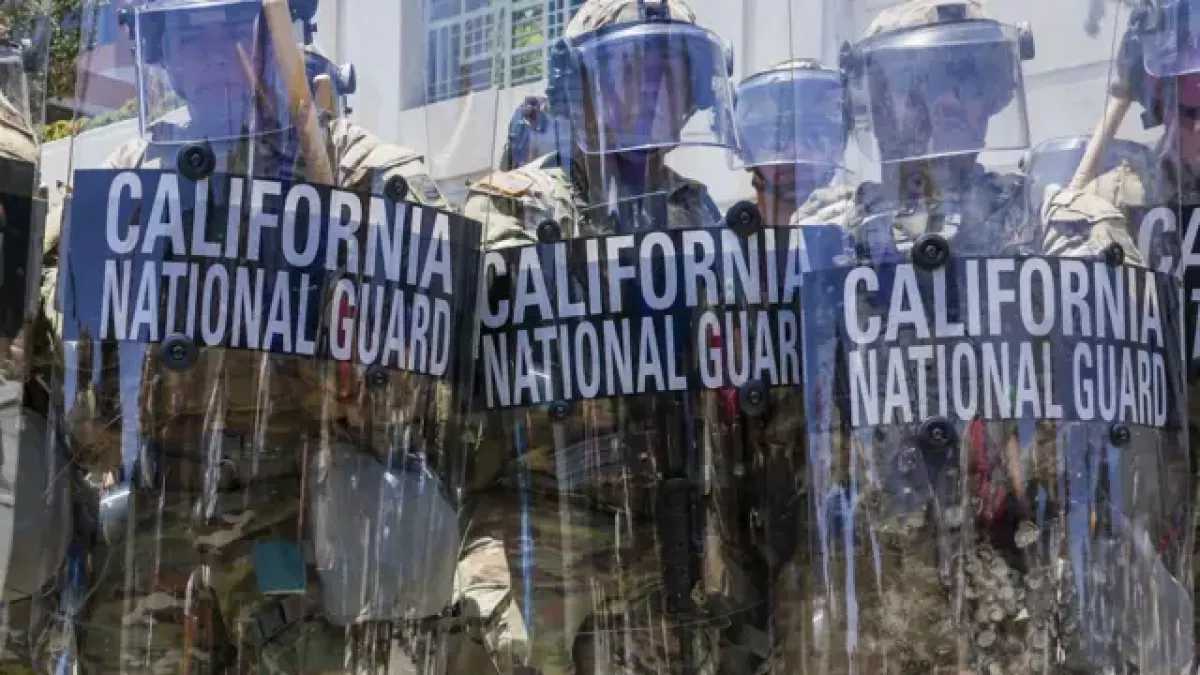
The National Guard is a key component of the U.S. security system and typically reports to state governors. However, acting under a state of emergency, Trump issued a direct order for its deployment, citing a law that classifies mass protests as a "form of rebellion against the authority of the Government of the United States."
Such a step had previously been taken only in exceptional circumstances — for example, in 1965 by President Lyndon Johnson during the suppression of riots in Alabama.
By June 8, three hundred National Guardsmen had taken positions in Los Angeles. Despite this, riots continued in several districts, with incidents of vandalism, car arson, and attacks on police officers reported.
The possibility of deploying 700 Marines was being discussed. This would require invoking the 1807 Insurrection Act — a measure that Trump had already considered in 2020 during the Black Lives Matter (BLM) protests.
Opposition from California authorities complicates the implementation of these measures. The state is traditionally governed by the Democratic Party and has consistently resisted federal efforts to restore order. This is not the first case of confrontation: during Trump’s first term, California filed 123 lawsuits against the White House. Now, the rate of filing lawsuits has accelerated.
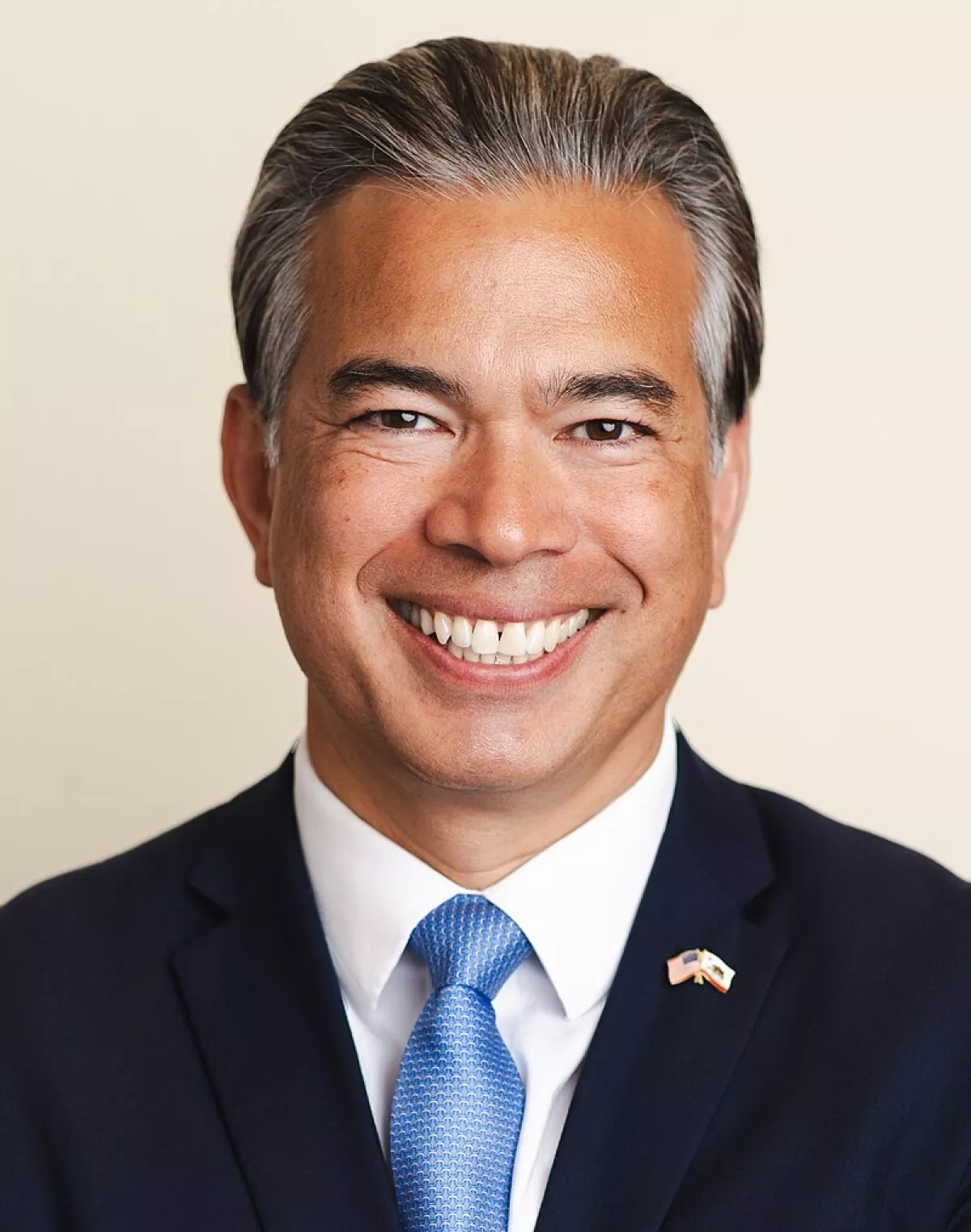
The state Attorney General, Rob Bonta, stated: “We’ve brought a lawsuit more than once a week in the first hundred days, and during Trump 1.0 there were about 120 lawsuits over four years…We’re gonna hit around 100 at this rate in two years…” However, such actions are difficult to call constructive — they only undermine the unity of the country at a challenging time.
In response to the aggressive legal campaign from Sacramento, President Trump rightly accused California Governor Gavin Newsom of mismanagement that led to the devastating wildfires in 2024. He also criticised the state’s water policies, saying that water doesn’t reach the fire hydrants, and accused California’s leadership of complete incompetence.
Furthermore, he questioned the appropriateness of federal funding for the state, where decisions are being made that directly contradict the fundamental principles of the American legal system — such as allowing transgender athletes to compete in women’s sports.
The deployment of the National Guard has become a new flashpoint in the confrontation between the White House and Sacramento.
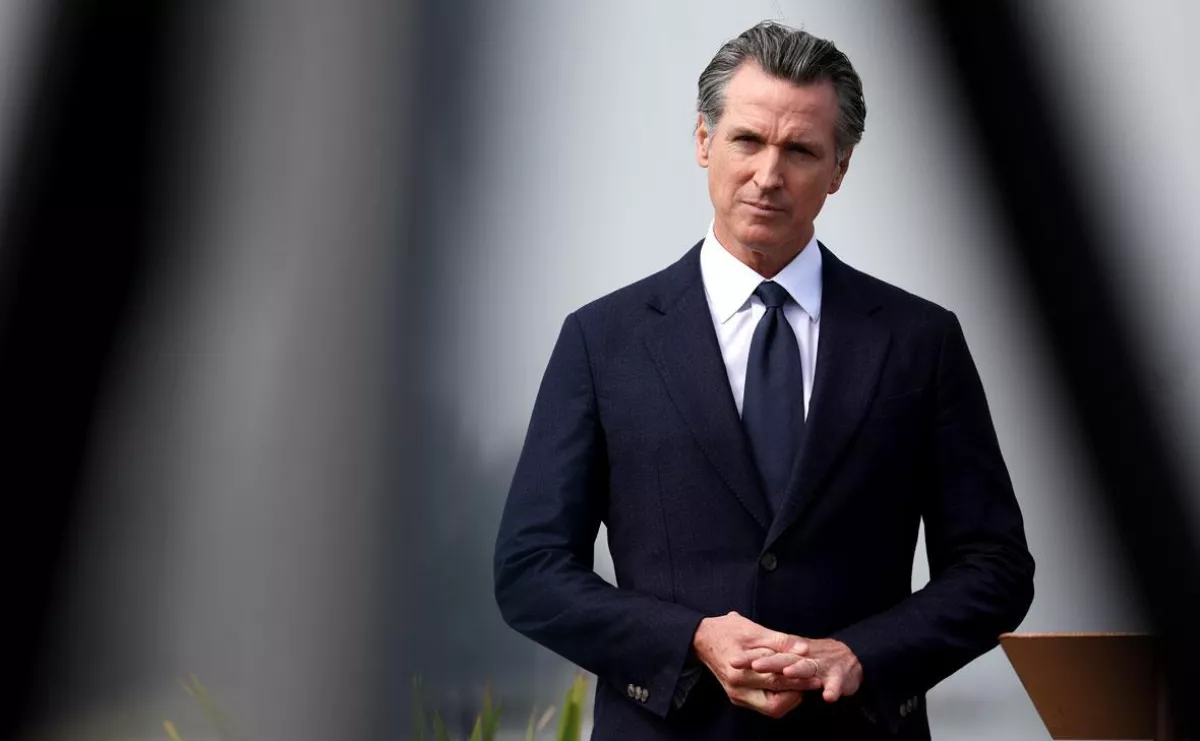
Governor Gavin Newsom called Trump’s actions a “breach of state sovereignty” and appealed to the Pentagon chief to withdraw the troops. On the social media platform X, he wrote, “We didn’t have a problem until Trump got involved…” However, it was precisely the passivity of local authorities that led to the escalation.
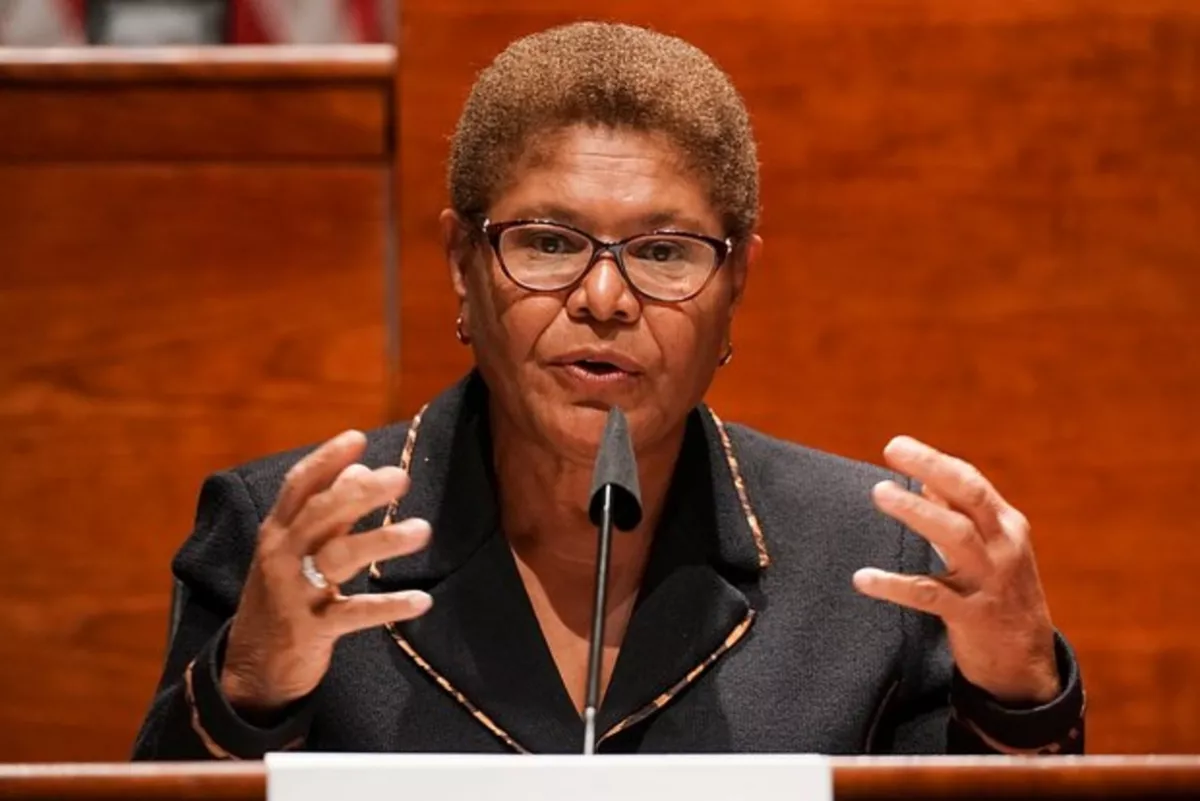
Los Angeles Mayor Karen Bass joined Newsom’s rhetoric, calling the federal government’s measures “an intentional effort to sow chaos.” Instead of cooperating with the federal centre, California politicians prefer confrontation, enabling radicals and provoking further destabilisation.
They were supported by Democrats in Congress as well. Florida Democratic Congressman Darren Soto criticised the actions of the immigration enforcement agency, stating that “American citizens are even getting snatched up just for looking Hispanic” and that “due process has also been largely ignored.”
Former Vice President Kamala Harris called the deployment of the National Guard a “dangerous escalation meant to provoke chaos” and part of a “cruel, calculated agenda to spread panic and division.”
California Democratic Congress members Sam Liccardo and Lateefah Simon focused on supporting immigrant communities. Liccardo warned that Trump’s actions could push “our nation down a dangerous path toward tyranny,” while Simon stated that the protesters “are not alone ” and pledged to defend their rights.
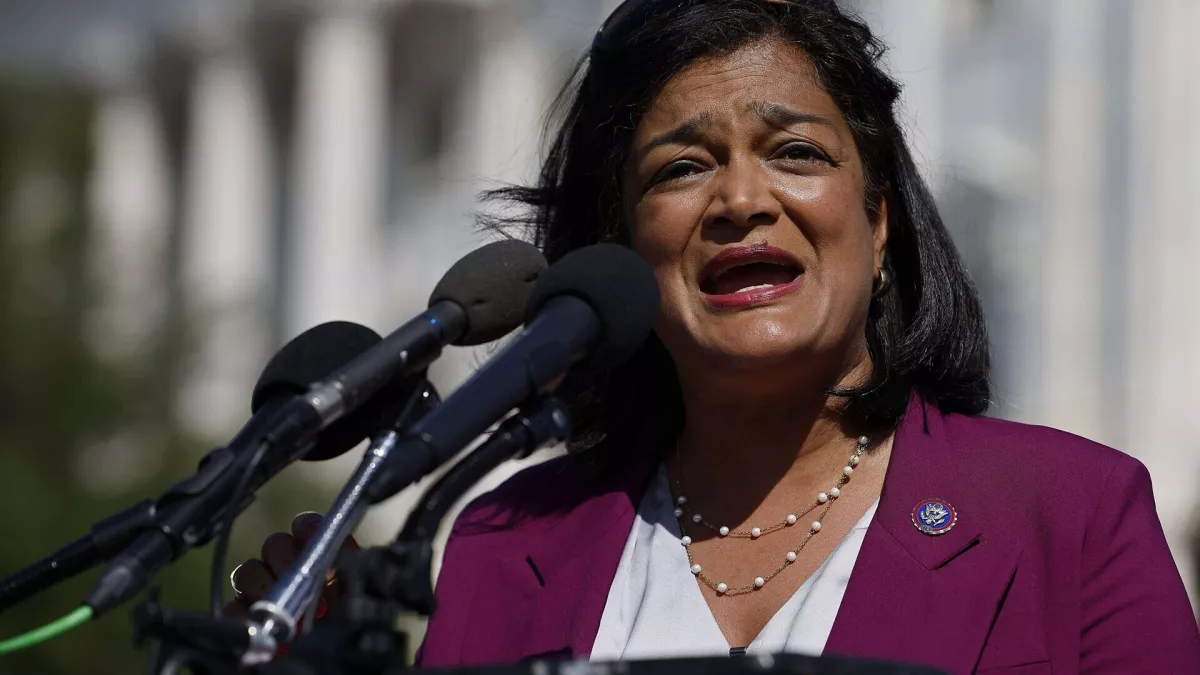
Democratic Congresswoman Pramila Jayapal condemned the "weaponizing the military against US citizens and immigrants alike."
Experts note that the situation could become a turning point: the Democrats' actions are easily interpreted as an attempt to sabotage Trump’s immigration policy. In contrast, the president is demonstrating determination to ensure law and order.
Republican Senator Bernie Moreno described the protests as "a violent uprising in defense of criminal illegal aliens" and emphasised, "President Trump is absolutely right to restore law and order."
Congressman Eli Crane ironically remarked that the chaos is the result of Democratic governance, while his colleague Darrell Issaaccused Democrats of believing "enforcing our immigration laws should incite people to attack Ice agents and riot in the streets."
The current confrontation between the White House and California is far from unique. Under President Joe Biden, a similar conflict arose between the federal government and the authorities of Texas — then a Republican-led state. At that time, even hypothetical scenarios of the "Lone Star State" seceding from the United States were discussed — a sign of the depth of the crisis under Democratic leadership.
Today, despite the seriousness of the situation in California, even media critical of Donald Trump avoid such speculation. However, it is clear that the opposition forces to the current president, having recovered from their political defeat, are relying on street pressure, lawsuits, and administrative sabotage to prevent Trump from peacefully carrying out the mandate given to him by voters.
Nevertheless, the president maintains a firm stance and acts within the law, despite resistance from local elites who place their own political ambitions above the interests of the country.








